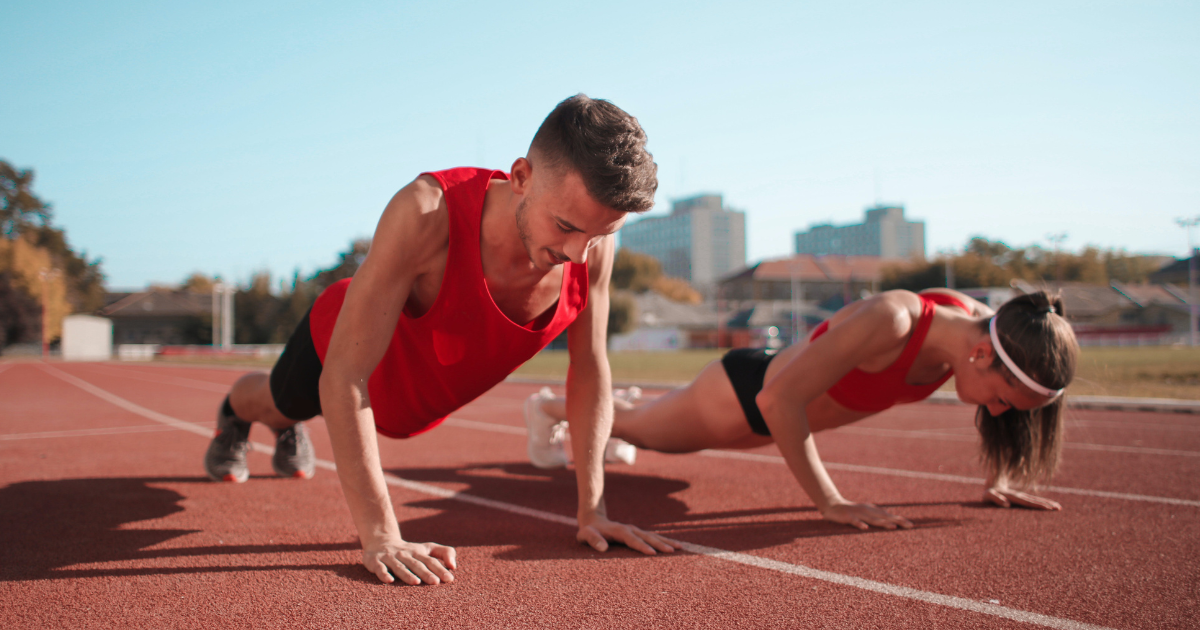In the bustling world of academia, the significance of physical well-being is sometimes overlooked. Yet, the connection between a healthy body and a sharp mind is undeniable.
Regular exercise is a cornerstone of a healthy lifestyle.
Beyond the obvious physical advantages, it serves as a catalyst for mental acuity, emotional stability, and even social development.
This article unravels the intricate relationship between physical exercise and academic prowess, shedding light on the myriad ways in which staying active can elevate scholastic achievements.
Cognitive Benefits of Exercise
A. Enhanced Cognitive Functions
1. Improved Memory Retention
Exercise has been shown to boost the production of neurochemicals that play a crucial role in memory consolidation.
The hippocampus, a brain region vital for memory, undergoes remarkable changes during physical activity, leading to improved recall and retention of information.
2. Increased Focus and Concentration
The ability to concentrate during lectures or study sessions is paramount for academic success.
Engaging in regular exercise sharpens focus by stimulating the release of neurotransmitters like norepinephrine, which enhance attention and concentration.
B. Neurotransmitters and Learning
1. Role of Dopamine in Motivation
Dopamine, often dubbed the feel-good neurotransmitter, plays a pivotal role in motivation and reward-seeking behavior.
Exercise triggers the release of dopamine, creating a sense of accomplishment and motivation that can be channeled into academic pursuits.
2. Impact of Endorphins on Mood and Learning
Endorphins, the body's natural painkillers, are also mood-enhancers.
Engaging in physical activity leads to the release of endorphins, which not only alleviate stress but also create an optimal mental state for absorbing new information.
Physical Activity and Brain Structure
A. Neuroplasticity: The Brain's Remarkable Adaptability
The brain's astounding ability to reorganize and adapt, known as neuroplasticity, is influenced by various factors, including physical exercise.
Engaging in regular physical activity encourages the formation of new neural connections, enhancing cognitive flexibility and problem-solving abilities.
B. Exercise-Induced Growth Factors
1. BDNF and Its Influence on Learning
Brain-Derived Neurotrophic Factor (BDNF) is a protein crucial for neuronal growth and development.
Exercise upregulates BDNF levels, which in turn, promotes neurogenesis, leading to an enriched learning environment.
2. Importance of Hippocampal Development
The hippocampus, a region associated with learning and memory, experiences significant growth with regular exercise.
This expansion has a direct correlation with improved learning capacity and information retention.
Stress Reduction and Mental Well-being
A. Exercise as a Natural Stress Reliever
In the midst of academic pressures, stress can become a formidable adversary.
Regular physical activity triggers the release of endorphins, providing a natural and effective means to combat stress and enhance mental well-being.
1. Regulation of Cortisol Levels
Exercise regulates cortisol, the primary stress hormone.
By maintaining cortisol levels within a healthy range, exercise helps prevent the adverse effects of chronic stress on cognitive function.
2. Alleviation of Anxiety and Depression
The mood-enhancing effects of exercise extend beyond momentary euphoria.
It has been shown to be an effective adjunct therapy in managing anxiety and depression, providing a solid foundation for focused academic endeavors.
B. The Synergistic Effect: Exercise and Mental Clarity
1. Enhanced Problem-Solving Skills
The clarity of mind achieved through exercise is conducive to effective problem-solving.
This mental acuity is invaluable for tackling complex academic challenges.
2. Stress Management for Optimal Cognitive Performance
A stress-free mind is a fertile ground for learning.
Exercise equips individuals with the tools to manage stress effectively, paving the way for sustained cognitive performance.
Sleep Quality and Academic Achievement
A. The Link between Exercise and Improved Sleep Patterns
Quality sleep is the cornerstone of cognitive function and academic success.
Engaging in regular physical activity has been linked to improved sleep quality, ensuring that students are well-rested and mentally prepared for the challenges of academia.
B. REM Sleep and Memory Consolidation
1. The Impact of Physical Activity on Sleep Architecture
Regular exercise positively influences the architecture of sleep, particularly REM (Rapid Eye Movement) sleep.
This stage of sleep is crucial for memory consolidation, allowing for the integration of newly acquired information.
2. Role of Sleep in Learning and Retention
A well-rested mind is more receptive to learning.
Adequate sleep ensures that information is effectively encoded and retained, bolstering academic performance.
A. Team Sports and Interpersonal Skills
1. Cooperation and Communication
Participating in team sports fosters crucial interpersonal skills such as teamwork, communication, and collaboration.
These skills are not only beneficial in sports but also translate into academic group projects and discussions.
2. Building Empathy and Emotional Intelligence
Navigating the dynamics of team sports cultivates empathy and emotional intelligence.
These qualities contribute to a positive classroom environment and facilitate effective interactions with peers and instructors.
B. Confidence and Academic Success
1. The Power of Self-Efficacy
Physical activity, whether through individual pursuits or team sports, builds self-efficacy.
This belief in one's ability to achieve goals extends to academic pursuits, bolstering confidence in the face of challenges.
2. Overcoming Academic Challenges through Physical Activity
The resilience gained from overcoming physical challenges transfers seamlessly to academic endeavors.
Students who engage in regular exercise are more adept at handling setbacks and persisting towards their academic goals.
Time Management and Goal Setting
A. Balancing Academics and Exercise
1. Cultivating a Healthy Routine
Incorporating exercise into a daily routine instills discipline and time management skills.
This balance ensures that both academic responsibilities and physical well-being are prioritized effectively.
2. Maximizing Productivity through Physical Activity
Regular exercise has been shown to enhance productivity by improving focus and energy levels.
This heightened productivity allows for more efficient use of study time, ultimately leading to academic success.
B. Goal-Oriented Mindset and Academic Excellence
1. Transferable Skills from Athletic Pursuits
The goal-setting mentality inherent in physical training translates seamlessly into academic pursuits.
Setting specific, achievable objectives and working towards them is a cornerstone of success in both arenas.
2. Achieving Academic Milestones through Persistence
The persistence cultivated through physical training is directly applicable to academic challenges.
Students who engage in regular exercise are more likely to persevere through academic hurdles, ultimately achieving their desired milestones.
The Role of Dopamine and Reward Pathways
A. Dopamine Release during Exercise
1. The Science of Runner's High
The surge of dopamine during exercise, commonly referred to as the Runner's High, is a well-documented phenomenon.
This natural high not only enhances mood but also serves as a powerful motivator for academic pursuits.
2. Motivation and Goal Attainment in Academics
The influence of dopamine on motivation is instrumental in academic success.
By associating academic achievements with a sense of reward, students are more inclined to set and accomplish ambitious goals.
B. Habit Formation and Academic Discipline
1. Building Consistent Study Habits
The habit-forming nature of exercise spills over into academic routines.
Through regular exercise, students develop the discipline needed to establish consistent study habits, leading to sustained academic excellence.
2. Sustaining Long-term Academic Motivation
The same discipline that fuels regular exercise is channeled into maintaining long-term academic motivation.
This resilience is crucial for persevering through the rigors of education.
Long-term Benefits and Academic Sustainability
A. Lifelong Habits for Continued Academic Success
Engaging in regular exercise sets the foundation for a lifetime of academic achievement.
The habits and skills developed through physical activity continue to bolster cognitive function and overall well-being throughout one's educational journey.
B. The Holistic Approach: Exercise, Diet, and Mental Health
1. Synergistic Effects of a Healthy Lifestyle
Regular exercise is just one piece of the puzzle in achieving optimal academic performance.
Coupled with a balanced diet and a focus on mental health, it forms a powerful trio that sustains academic success in the long run.
Conclusion
In the pursuit of academic excellence, it's imperative to recognize the symbiotic relationship between physical health and cognitive function.
Embracing a well-rounded approach that encompasses both physical exercise and intellectual pursuits is the key to unlocking one's full academic potential.
The benefits of regular exercise extend far beyond the confines of the gym or sports field.
They permeate every aspect of academic life, from cognitive function and emotional well-being to social development and goal attainment.
By prioritizing physical health, students lay the groundwork for a successful and fulfilling academic journey.
Related Articles
The Impact of Physical Education in Schools
Why do Children need to Exercise and how often?







0 Comments